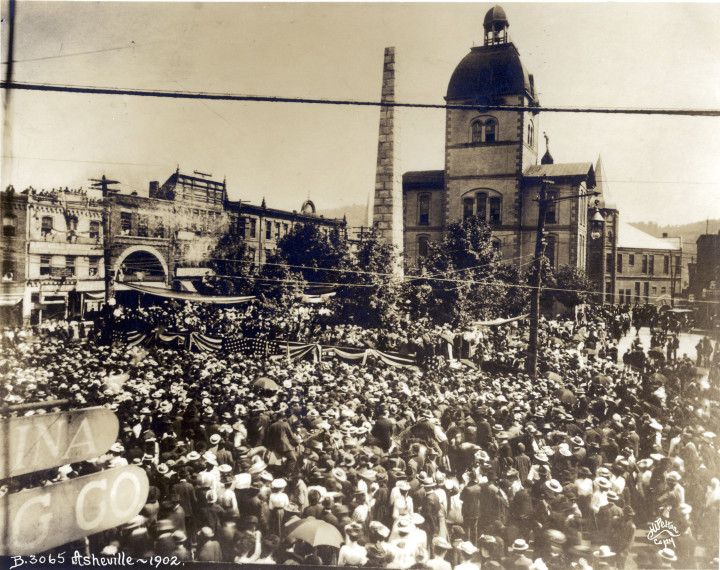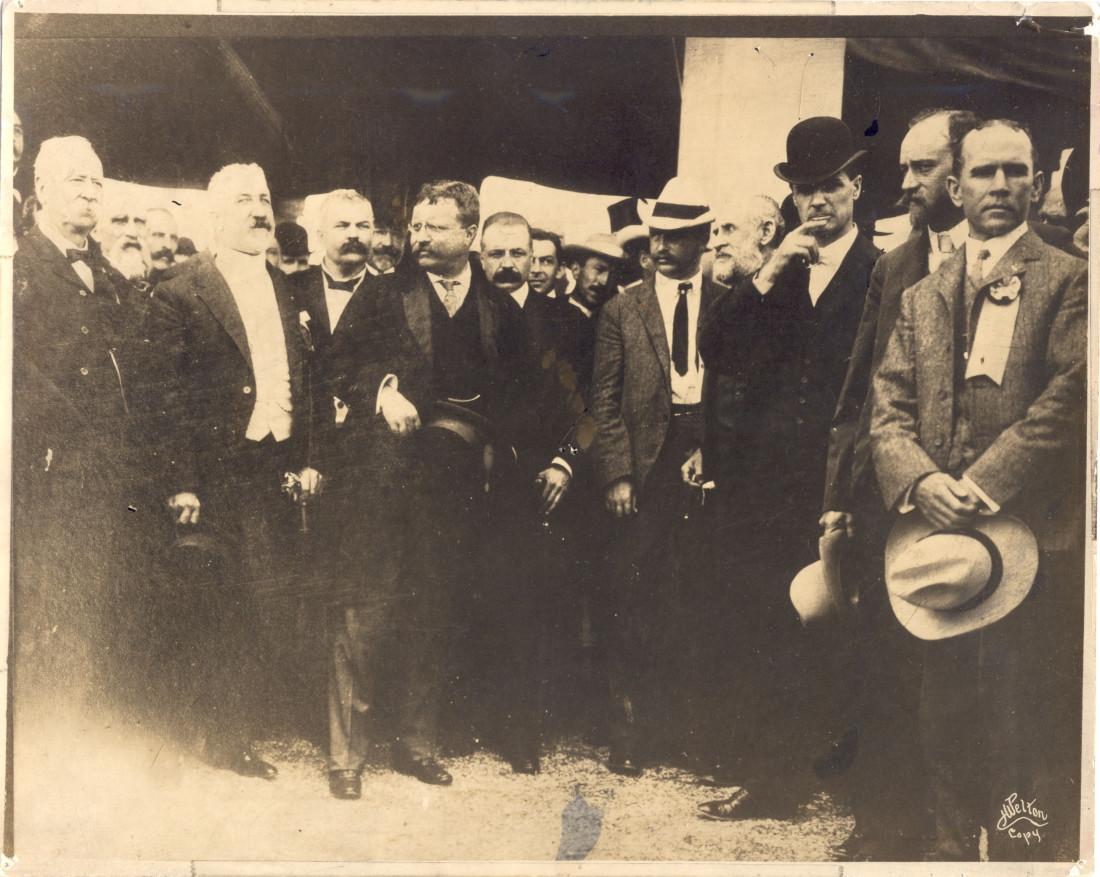In 1902, speculation over a presidential bear hunt captured the attention, pride and imagination of local residents. In June, The Asheville Citizen informed readers that, come autumn, President Theodore Roosevelt might join North Carolina Sen. Jeter Conley Pritchard “in a black bear hunt in the Black Mountains of the Tar Heel State.”
At the time, Roosevelt was still fairly new to the office. As the former vice president, he assumed his new position following the September assassination of his predecessor, William McKinley. Roosevelt, however, was no stranger to the public eye. As leader of the Rough Riders, he found national recognition during the Spanish-American War.
Word of Roosevelt’s possible hunting expedition elicited various responses from the community. In the June 9 edition of The Asheville Citizen, one resident offered a tongue-in-cheek report, reminding readers of the “corn juiceries” that existed in the very mountains Roosevelt would traverse. “No United States official can safely approach these places except under a flag [of] truce or with a superior force on a rainy night in the dark of the moon,” the article claimed. The writer later suggested that if Sen. Pritchard insisted on inviting the president to the area, the legislator should first “conclude a treaty with the ‘Moonshiners’ to cover the period of Mr. Roosevelt’s visit[.]”
The following month, on Aug. 7, The Asheville Citizen highlighted the dangers associated with bear hunting. In its article, the paper shared a recent outing by Mark Reece, “a famous hunter of the Blue Ridge.” According to the account, Reece shot and killed a mother bear and her cub. Two other cubs were present. One would escape. The other nearly killed Reece, when the hunter attempted to capture it alive.
The article stated:
“Reece’s clothing was torn into shreds, his flesh clawed and gashed and his body covered from head to feet with blood and dust. Finally the desperate man got a firm grip on the bear’s throat and clung to his savage antagonist until his grasp began to tell. The bear relaxed his attacks, his head dropped and he toppled over, his tongue hanging from his mouth, while Reece, nearly dead from loss of blood, scrambled to his feet and secured bruin with a rope.”
Other articles used Roosevelt’s invitation to speculate on and poke fun at the president’s reputation as a skilled marksman. But no matter the focus, all pieces agreed: The region had plenty of black bears and the president was more than welcome to come out and try his luck.
Roosevelt would arrive in Asheville on Sept. 9, 1902. His visit, however, would be void of any hunting expedition. Instead, the president was paraded through the city, making a brief stop at the original Battery Park Hotel. He then delivered a speech to thousands of residents at Court Square (present-day Pack Square).
During his address, the president declared:

“We never can succeed in making this country what it can and shall be made until we work together, not primarily as Northerners or Southerners, Easterners or Westerners, nor primarily as employers or employes, townsman or countryman, capitalists or wage earners, but primarily as American citizens … as American citizens to whom the right of brotherly friendship and comradeship with all other decent American citizens comes as the greatest and first of all privileges.”
Midway through his speech, Roosevelt offered his listeners the essential traits of a good citizen. Courage and common sense were among the prerequisites. But above all, the president stated:
“For a citizen to be worth anything, what you need is character, and into character many elements enter. In the first place, decency and honesty; if a man isn’t honest, isn’t decent, then the brighter he is, the more dangerous he is to his community.”
Later still, Roosevelt reminded the Asheville audience that government depended on the people. “You are the government, you and I, and the government will do well or ill according as we,” he spoke. “And we must make up our minds that the affairs of the government shall be managed.”
Editor’s note: Peculiarities of spelling and punctuation are preserved from the original documents.



oh, that last sentence is rich… ‘And we must make up our minds that the affairs of the government shall be managed’… (in ways that shall greatly benefit the controlling class.)